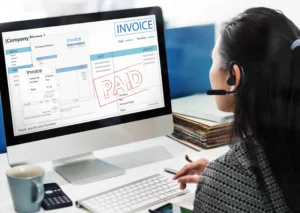Here is a breakdown of some key information regarding the TP-DF:
Purpose of filing the TP-DF
The following are the FTA’s objectives vis-à-vis filing of the TP-DF by taxpayers:
- TP-DF makes sure that a taxable person is complying with the UAE CT and TP rules and regulations.
- It makes the transactions with connected persons and/or related parties more transparent.
- It helps to recognize the potential risks associated with TP.
What is Included in the TP-DF?
TP-DF includes the following information:
- Information about the entity and its income during the taxable period.
- Information on different types of transactions the taxpayer has undertaken with connected persons and/or related parties during the taxable period.
- Information / Details of connected persons and/or related parties.
- Information on the nature and values of the controlled transactions.
- Information on the market values of the controlled transactions.
- TP methods the taxpayer has utilized to find arm’s length price (ALP).
- Arm’s Length Price (ALP).
- Documents that support the ALP.
- Tax Adjustment.
Who Needs to File the TP Disclosure Form?
The following persons need to file the TP-DF:
- Persons that are taxable for the purpose of CT and conduct transactions with connected persons and/or related parties in a single taxable period.
- Free Zone (FZ) businesses that are involved in transactions with connected persons and/or related parties.
- Businesses that undertake transactions with PEs (permanent establishments).
- Businesses that are involved in financial transactions, intangibles, or intra-group services.
Major Industries that Need to File the TP-DF
Inter-alia, the following key business sectors would expected to file the TP-DF with respect to their transactions with Related Parties and/or Connected Persons:
- Wholesale
- Manufacturing
- Trading
- Services
- Telecommunication
- Oil and Gas
- Insurance
- Financial Institution
- Banking
Requirements of TP-DF
The following are some of the general requirements of the TP-DF:
- Preparing a TP-DF is a prerequisite for businesses who undertake transactions with connected persons and/or related parties in a taxable financial year.
- Annual submissions are required to be done along with CT filing.
- Businesses need to submit the TP-DF along with CT filing online through the MoF (Ministry of Finance) portal.
- The due date for filing the TP-DF along with the CT Return is within 9 months from the end of the relevant tax period.
Exemptions from filing the TP-DF
The following are some of the notified exemptions from filing of the TP-DF:
- Government authorities and Government businesses.
- Businesses that do not carry out any transactions with Connected Persons and/or Related Parties.
- SMEs (Small and Medium-Sized Enterprises) whose transactions with Connected Persons or Related Parties do not exceed the prescribed threshold.
Clarifications required vis-à-vis filing of the TP-DF
Going forward, the following clarifications from FTA would be required while filing the TP-DF:
- Is there any materiality threshold for disclosure or are all related party/connected person transactions to be assessed for ALP and market value?
- Can the CT return and the TP-DF be filed in advance or will the current practice whereby the CT return for the taxpayer is activated by the FTA only when the deadline approaches, continue?
- Will the TP-DF distinguish between transactions between FZ & mainland, such that tax-neutral transactions are treated separately?
- Will the TP-DF recognize the use of “other method” for TP benchmarking purposes, as allowed under the CT law?
- How should the nature of relationship with Related Parties and/or Connected Persons be disclosed?
- How should Tax Group reporting cases get captured, especially where the parent entity files the tax return?
- How should goods / services sold or provided ‘free of cost’ be disclosed?
- How should capital transactions be disclosed?
- How should income received from Connected Persons be disclosed?
Recommendations for Businesses
- Businesses that are subject to file TP-DF must maintain every single detail of their relevant transactions.
- The records and information must be accurate and error-free.
- Businesses must review their TP policies and strategies regularly, with professional assistance from experts, wherever required.
- Businesses should make sure that they also conform to international TP regulations such as those from the Organization of Economic Co-operation and Development (OECD).
- Businesses should consider seeking advice and assistance from relevant experts, so that they are always compliant of the laws and can avoid unnecessary penalties.
Why Choose Taxgian?
TP is a complex subject itself and it makes it harder for businesses to comply with TP regulations. Businesses must take assistance from expert tax agents like Taxgian so that they can comply with all the requirements of CT and TP. The main purpose of Taxgian is to ensure compliance for your business and our tax agents are proficient in this. We know how hefty penalties affect businesses and we are here to protect your business from such situations.
Seek expert guidance on TP matters from experts at Taxgian. Our experts will simplify the complex subject of TP and its various concepts for you. Our tax agents are experienced and knowledgeable in this field. Contact us at: +971 50 249 8194 or email: info@taxgian.ae. Visit our office at Office # 3006, 30th Floor, Al Attar Tower, near DIFC, Sheikh Zayed Road, Dubai, UAE.



